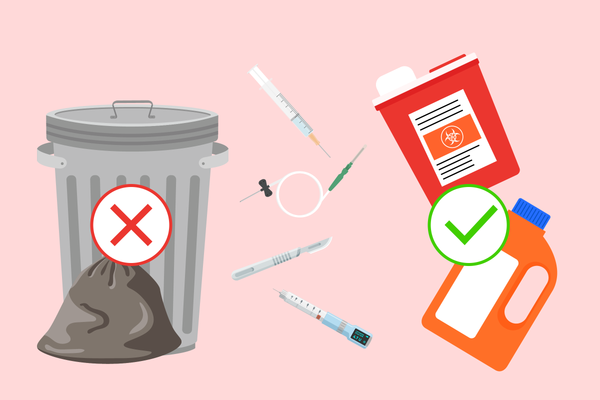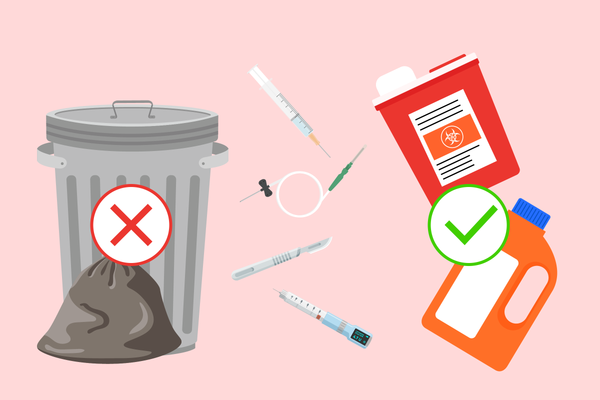What is step therapy with forced off-label prescribing?
- Step-therapy, also referred to as fail first, is a medication utilization practice commonly used by insurers. It requires patients to "fail" on one or more medications before the insurer will agree to cover the cost of the medication recommended by the patient's own healthcare provider (HCP).
- Fail first with forced off-label use occurs when insurers require patients to try and fail on one or more medications not approved by the U.S. Food and Drug Administration (FDA) for the treatment of her medical condition, as part of the step-therapy / fail-first process.
- If the required substitution doesn't work, payers can either grant access to the medicine originally prescribed by the patient's own HCP, or they can require her to try and fail on one or more additional medications first, which, again, may not be FDA approved for the treatment of her medical condition.
Why is forced off-label prescribing a concern for women?
- Requiring women to try and fail on one or more medications not FDA approved for treating a particular medical condition may jeopardize a woman's health and well-being by: (1) delaying her access to appropriate care, and (2) exposing her to medications that may not have been well studied for use in treating her particular medical condition – or in her patient population.
- While off-label use is often appropriate (for example, when treatment options are limited), the decision to prescribe off-label requires extensive medical training, clinical experience, and direct knowledge of a patient's medical history, all of which is best understood by a woman's own healthcare provider.
- Cost-containment is an important goal, but patient health and safety should come first. Step therapy can delay or decrease the quality care. Some patients may incur extra expenses associated with the extra in- or out-patient care they require as they try to sort out their medications. Others may give up, and get no treatment at all.
How can payers justify requiring women to try and fail on medicines used off-label?
- Payers often justify off-label use by citing evidence found in "the medical literature," e.g., peer-reviewed medical journals.
- The problem is that information available through the medical literature is often fragmented and can be used selectively, providing only a limited understanding of – and potential misperceptions about – the off-label use and possible consequences.
- In contrast, the FDA requires a rigorous and comprehensive review process. As a result, patients and their HCPs know that medicines approved by the FDA for specific uses have been well studied for the treatment of particular medical conditions, in defined patient populations, and through studies explicitly designed for those patient populations.
- Prescription drug labeling is a summary of the safe and effective uses of a drug, as approved by the FDA, and intended for healthcare professionals. According to federal regulations, drug labeling must be informative and accurate and may not imply claims or suggestions for use if evidence of safety or effectiveness is lacking.
- Some patients (and their HCPs) may be willing to accept risks associated with off-label use; others may not. A patient's risk tolerance relative to off-label use may be situational, and is always personal.
What are some examples of forced off-label use among women?
Two examples involve women experiencing major life milestones: pregnancy and menopause.
Menopause
- Women with moderate to severe vasomotor symptoms (VMS) associated with menopause (more commonly known as hot flashes) are among the patients being unfairly impacted by step therapy with forced off-label prescribing.
- Until recently, the only FDA-approved treatment option available to women suffering from hot flashes was hormone therapy – an option some women are unable or unwilling to use, for personal or health-related reasons, including a history of breast cancer.
- Treatment options for women suffering from hot flashes expanded in 2013 when the FDA approved the first and only non-hormonal therapy for treating moderate to severe hot flashes – a prescription medication called Brisdelle.
- Unfortunately, rather than providing patients with first-line access to this option, some payers are instead requiring women to first try and fail on off-label uses of either (A) a generic form of the medication, dosed at least 33 percent higher than the FDA-approved formula; or (B) on completely different medications all together. There have even been reports of payers requiring women to first try and fail on hormone therapy, which most women seeking non-hormonal treatment options are trying to avoid in the first place.
Pregnancy
- Nausea and vomiting of pregnancy or NVP is a very common medical condition in pregnancy and affects 50-90 percent of pregnant women. Although typically known as morning sickness, symptoms can occur at any time of the day, and may have a major impact on a woman's quality-of-life and work productivity.
- Previously, prescribers relied on diet and alternative therapies for NVP, but treatment options for women suffering from moderate to severe NVP expanded in April 2013 when the first FDA-approved medication for NVP was approved in the U.S. – in the form of a prescription medication called Diclegis.
- Currently, Diclegis is the only FDA-approved, Pregnancy Category-A medication for the treatment of NVP in women who do not respond to dietary and lifestyle modifications.
- Unfortunately, many health insurance companies are delaying or blocking women from appropriate access to Diclegis, by forcing them to first fail on other medicines – none of which have been approved by the FDA for their condition. This can prolong a woman's suffering, and exposes her baby to medications whose effects on the fetus have not been properly studied.
What can women do about forced off-label prescribing?
- Patients should not be forced by an insurer to take a medication for an off-label indication.
- If your insurance plan requires you to try and fail on a medicine not FDA approved for your medical condition, make insurers – and the bodies that govern them – aware that forced off-label prescribing is unacceptable to you. Contact your insurer, your legislators, your state's insurance commission, and your state's attorney general's office to share your views.
- Women should not be forced to fail on prescription medications that are not FDA approved for use in treating their health conditions when FDA-approved options are (1) available, and (2) chosen by their own healthcare providers as first-line treatment.
- Your voice matters: With input from patients like you, three states, Maryland, New Hampshire and Vermont, recently passed legislation to restrict forced off-label use in step therapy protocols.







